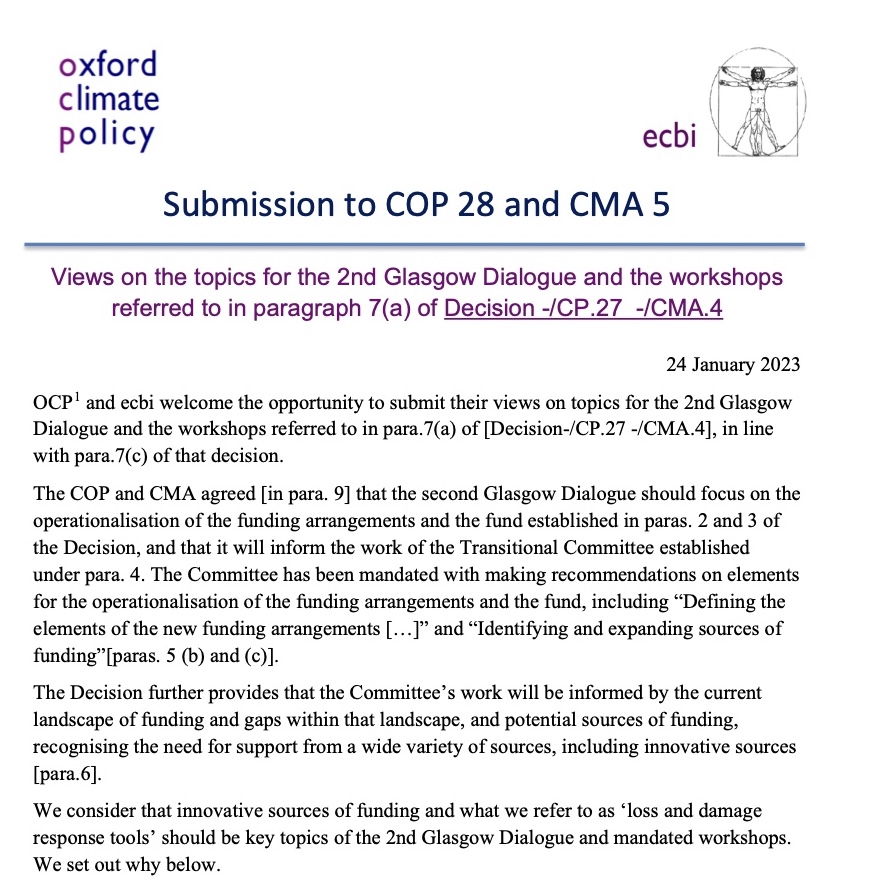
The decision to establish a Loss and Damage Response Fund in Sharm el Sheikh has been hailed as “historic” in the multilateral climate regime, and recognises that loss and damage is not a future threat, but a reality that many countries, particularly developing countries, face today. Paragraph 7(a) of that decision (Decision -/CP.27 -/CMA.4), requests the Secretariat to conduct two workshops in 2023 relevant to addressing loss and damage, while paragraph 7(c) invites Parties and relevant organizations to submit views on topics for and the structure of the 2nd Glasgow Dialogue and the workshops.
In response to this invitation, OCP/ecbi has prepared a submission of its views on the topics for the 2nd Glasgow Dialogue and workshops. The COP/CMA agreement stipulates that operationalisation of the new fund will require “defining the elements of the new funding arrangements”, including where the funding comes from and what activities the Fund will support, which the submission proposes that the Dialogue and workshops address.
With respect to the fund’s financial viability, the submission points to concerns raised with respect to the risk that the fund could, under traditional national/public contributions, remain severely underfunded, or end up diverting funding originally intended for the Green Climate Fund. To ensure the fund is fit for purpose, the submission underscores the need to consider “innovative funding sources”, including from sub-national stakeholders, such as corporations, individuals, and foundations.
The submission also refers to “loss and damage response tools”. It notes that while the decision describes some of the challenges or events that such response tools should address, such as “climate-related emergencies, sea level rise, displacement, relocation, migration, insufficient climate information and data, or the need for climate-resilient reconstruction and recovery”, it does little to shed light on exactly what types of activities should be funded. Thus, the submission mentions insurance as one type of response tool that has been identified, as well as challenges, including non-economic losses and those related to slow-onset events, that may require other types of response tools apart from insurance schemes.
Hence, the OCP/ecbi submission proposes that the 2nd Glasgow Dialogue and the mandated workshops showcase examples of both innovative funding sources and loss and damage response tools that the Fund could support financially. The full submission has been posted on the UNFCCC website.
